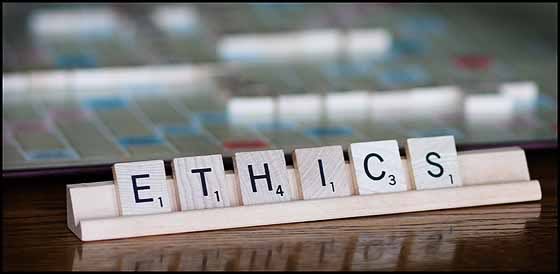The Limbo Time between Ethics Application and Successful Recruitment
The following post on the ethics approval process was written by Lauren Elsie White - a 2nd year PhD student from the Institute of Health and Wellbeing- and follows on from our previous post on where to start with research ethics approval. Lauren is based at the MRC/CSO Social and Public Health Sciences Unit and her research aims to understand the policy and public debate around the regulation of unhealthy online food advertising to children. She is currently conducting fieldwork and enjoying the change of pace from first year.
The Limbo Time between Ethics Application and Successful Recruitment
Hi readers!
If I am being honest, the first year of my PhD has been pretty smooth-sailing when looking back on it. I quickly narrowed down on an idea and topic area, which allowed me to really get into the literature at quite an early stage. As I moved through my first year, I found myself becoming more passionate about my subject area. I actively sought out opportunities to network, and people genuinely seemed interested in my work. My first year review was tough, as it should be, but it did provide me with new insights into my topic. From that point I happily moved onto my ethics application, applying the feedback I got from the review committee. I submitted at the beginning of October, and planned for the full 6-week turnaround that they suggest to accommodate for.
This period, between submafnitting my ethics application and successfully recruiting my first participants, has actually turned out to be the most mentally difficult part of my PhD so far. The ethics application went through pretty easily, with minor changes needing made. The part I found challenging was this feeling of ‘limbo’ between writing and submitting my application and successfully recruiting my first participants. Although I had work to do, which was writing up the initial draft of my methods chapter, I found myself struggling to ground my mind in work. I was constantly preoccupied with thoughts: Will my application be completely rejected? How am I actually going to get people involved in my research? and the big one - Is this even important? I found myself questioning my ability to do it all, as well as feeling increasingly like I was going to disappoint my supervisors. I struggled badly with motivation, and couldn’t help feeling like I was never going to move forward. I was genuinely surprised with feeling like this, as it was not something I had heard others experiencing before during this part of their PhD.
However, once I recruited my first participants I realised that: I could do it; people are interested; and it is important - I had managed to move past those feelings of doubt. Since then I have had some time over the Christmas break to reflect on what I could do to avoid feeling like that again.
Acknowledge that it is okay to have less to do during this period of time. The PhD is a myriad of peaks and troughs in terms of workload, so this will happen.
Speak to other PhD students! I left it a bit late to tell others how I was feeling, and I think this made the situation seem much more doom and gloom.
Set yourself writing goals for this period of time to hit each day - and once you hit this target, stop working for the day. I wish I had set myself the task of writing 800 words a day on my methods chapter - I would have been much more productive.
Once the ethics approval has come through, set a date that you want to have set up your first piece of fieldwork by. It took me a good couple of weeks before I did this, and I think that if I had done this sooner I would have organised something much quicker.
Sometimes it is seen as a weakness to acknowledge the really difficult times of research, but I think this is not only a disservice to you, but to your fellow students also. If we share our experiences more openly, it will help create better understandings of how to get through periods of major procrastination or self-doubt.
I am really enjoying my PhD, and definitely feel revitalised after having a break! I’m glad to have also gone through this tricky period, as I do think it has given me more resilience and made me take a humbling step back from the process to view it in a different light.
Best get back to that recruiting!
Lauren
The ethics application process differs between the University of Glasgow’s colleges; more information can be found on their specific ethics webpages:
-College of Medical, Veterinary and Life Sciences





